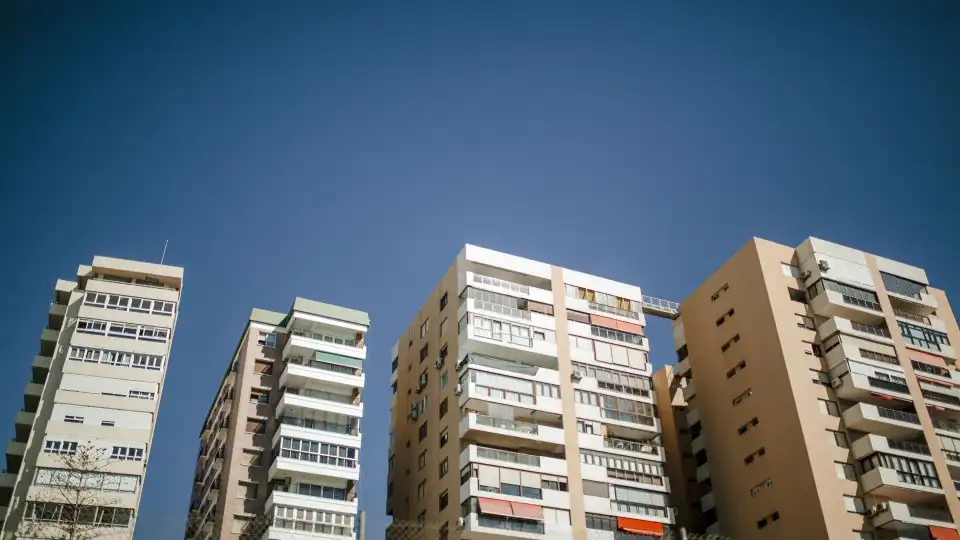‘Rush’ to build more homes is neglecting public space
The urgency to build housing, limited by the short deadline of the PRR, is changing urban planning, which has abandoned the planning characteristic of the Expo'98 period, to regress to construction without concern for public space, researchers warned.

© iStock

País investigadores
The analysis by researchers of the architectural and urban transformations that occurred in Portugal during the years leading up to Expo'98 and the two decades that followed resulted in the book "Os Grandes Trabalhos e o Desejo da Cidade de Exceção", supported by the Foundation for Science and Technology, coordinated by Paulo Tormenta Pinto, professor of Architecture and Urbanism, and by Ana Brandão, a researcher on cities and territories, both from ISCTE.
The authors agree that this period was marked by a thought of urban exceptionality, in which the world exhibition was a pretext to develop not only Lisbon, but also 39 other cities, through the Polis programs.
However, the period of urban creativity ended with the onset of the covid-19 pandemic and now, at a time when it is urgent to build new housing and when there is money from the Recovery and Resilience Plan (RRP) to do so until 2026, the new construction runs the risk of proving the proverb right "quickly and well, there is no one".
According to Paulo Tormenta Pinto, the Expo was "a good example of attributing importance to the planned city", although not everything went well at the metropolitan level, since "there are projects that have practically not advanced and remain expectant", such as the land of the old Margueira (former Lisnave, in Almada) and some areas of the Arco Ribeirinho Sul zone, in Seixal, Barreiro and Montijo, in the district of Setúbal, the third crossing over the Tagus or the new airport.
However, in the city of Lisbon the changes are striking.
In addition to the requalification of the eastern part of the city, facilities such as the Centro Cultural de Belém were built in the 1990s and, in the following decades, several projects were developed, such as "Uma praça em cada bairro", the rehabilitation of Praça de Espanha, of the Eixo Central or of Campo das Cebolas and the commitment to green corridors, to exchange the car for smoother modes of mobility, "privileging public space", he exemplified.
"These requalification works ended up attracting new investors and are very much associated with policies to attract external investments, etc., [...] situations that also ended up causing a housing shortage, a certain gentrification of cities and difficulty for people to remain living in the city itself", he said.
According to the coordinator, the city model developed at Expo'98 ceased to be attractive at the beginning of the pandemic, a time "when the usual problems come: the housing shortage and the need to do it quickly", associated with the Recovery and Resilience Plan, he said.
Tormenta Pinto highlighted that there is still not enough distance for researchers to analyze the current moment, and the evaluation of the real impacts of construction with this level of acceleration and how the 'Simplex' policies are or are not contributing to the benefit of the urban space will be left for a future work, but there is already some evidence of what is happening.
"From what is already possible to verify, what we have is the return of contracting models associated with design-construction, the acceleration of housing construction ignoring the idea of 'habitat' and the city with multiple layers of living. Therefore, between the facilities, public space, commerce, etc., we are very focused on building only housing", he considered, stressing that "this new reality is beginning to be visible" in suburban areas of Lisbon.
The official also highlighted that "all the knowledge accumulated in the Expo experience", which could help now in this new phase, "was thrown away", with the end of Parque Expo and EPUL (Public Urbanization Company of Lisbon) of the Lisbon City Council.
"In other words, Portugal, when it faces the post-covid housing crisis, is already short of some technical knowledge that had been accumulated", he stressed.
The book will be presented on Tuesday, at 6 pm, at the Centro Cultural de Belém, in Lisbon, at a conference with geographers João Ferrão and Álvaro Domingues and architects Manuel Salgado and João Nunes, in addition to the authors.
Leia Também: CML propõe "discriminação positiva" no acesso à renda acessível (Portuguese version)

Descarregue a nossa App gratuita.
Oitavo ano consecutivo Escolha do Consumidor para Imprensa Online e eleito o produto do ano 2024.
* Estudo da e Netsonda, nov. e dez. 2023 produtodoano- pt.com



